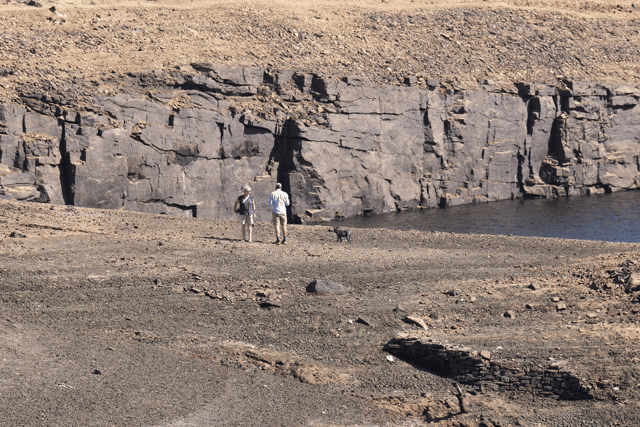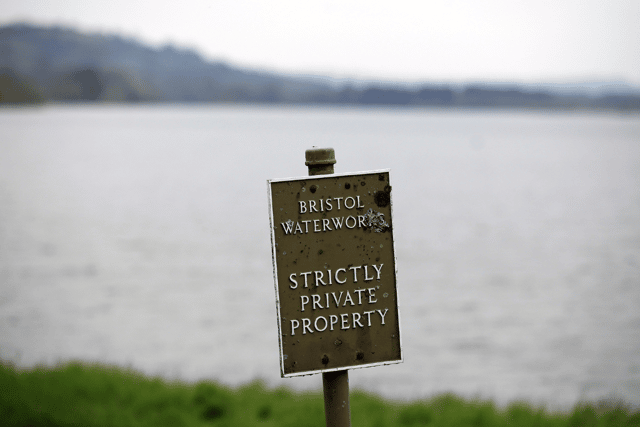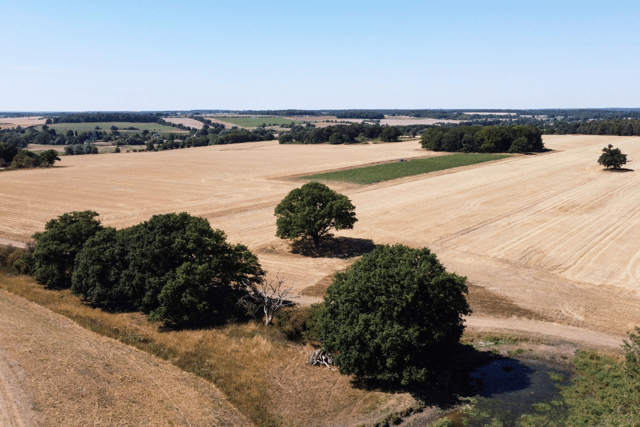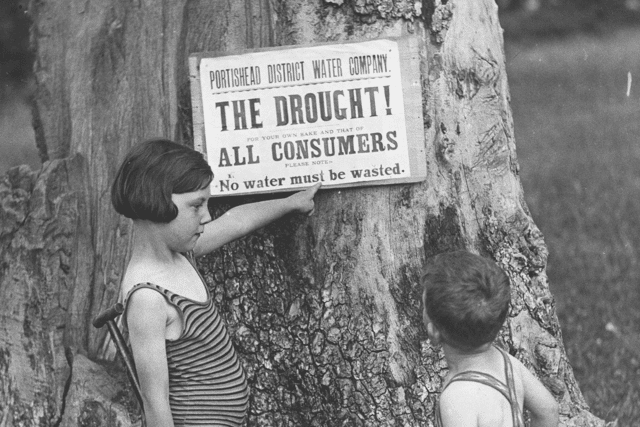UK drought 2022: what is a drought, will it affect Bristol & what has BristolWater said?
and live on Freeview channel 276
Amidst Bristol’s driest summer in 50 years, parts of England have been declared in drought.
The measures - which were discussed this morning by The National Drought Group - include the South-West of England. A drought is a period of abnormally dry weather.
Advertisement
Hide AdAdvertisement
Hide AdThe UK is currently experiencing its hottest summer to date with record-breaking temperatures recorded across the country. For Bristol, 36.9℃ was enough to blow the roof off of a record which had stood since 2003.
In 1975, Bristol experienced a similarly hot summer, followed by 16 months of low rainfall. Water restrictions including hosepipe bans were in place until 1976.
On July 28, Bristol Water maintained that the region won’t repeat such restrictions but that they are monitoring the situation.
Is Bristol officially in a drought?


Earlier today, it was confirmed that parts of South West, Southern and Central England and East of England had moved into Drought status.
Advertisement
Hide AdAdvertisement
Hide AdOn 12 August, The National Drought Group, met to discuss the environmental impacts caused from the driest summer in 50 years. It was agreed that a “drought trigger threshold had been agreed” and that parts of the South West would move into drought.
The Environment Agency has confirmed Drought status in eight areas:
- Devon and Cornwall
- Solent and South Downs
- Kent and South London
- Herts and North London
- East Anglia
- Thames
- Lincolnshire and Northamptonshire
- East Midlands
What has Bristol Water said?


As of yet, BristolWater hasn’t made an official statement regarding the droughts but it maintains that water restrictions in the area are not changing.
A Bristol Water spokesperson said, “We do not anticipate the need for any hosepipe bans or water supply restrictions in 2022 due to our current reservoir storage and demand levels.
Advertisement
Hide AdAdvertisement
Hide Ad“We are carefully monitoring the situation due to below average rainfall this year and lower reservoir levels compared to normal. As a result, we are balancing our stored resources in a way that will help us manage supplies during the drier conditions we are experiencing.
“It helps that we’re recognised as a top performer in the industry when it comes to reducing leakage in our water network, which is thanks to our hard-working staff who detect leaks, high-tech monitoring, and schemes replacing old water mains. Switching more of our customers to water meters is another effective means of tracing and reducing water wastage.”
What is a drought?
National Geographic defines a drought as, “a period of time when an area or region experiences below-normal precipitation.”
Droughts are a natural phenomenon that range in extremity, some occur quickly as result of extreme weather, while others are brought slowly, through seasons.
There are four key types of a drought:
- Meteorological - Precipitation departs from what is considered normal. However, a drought in one location may differ from another.
- Agricultural - When crops are unable to be watered by moisture in the soil.
- Hydrological - An area’s water supply is experiencing below normal surface and subsurface.
- Socioeconomic - The point where restrictions in water supply affect the general public.
Advertisement
Hide AdAdvertisement
Hide AdBristol Water defines a drought according to stored water in the region’s reservoir. Its local storage system has a capacity of 38,515 million litres with the company measuring the supply with ‘control curves’.
What impact can a drought have on Bristol?


In the case of an official drought, Bristol Water will measure reservoir storage to decide whether the supply is in “normal operation” or a “severe drought”. If the latter is confirmed, Bristol Water will administer emergency drought orders.
Regions may find that they have been in drought for longer than announced due to the difficulty of defining a drought - though it is clear that the longer a drought maintains, the more harm it will cause residents.
Droughts can block access to clean drinking water and cause crop damage. The latter means farmers have to water their crops through irrigation - the process of artificially watering crops using nearby lakes, rivers or streams.
Advertisement
Hide AdAdvertisement
Hide AdThe most common effect of droughts are regional or national water restrictions. Residents may expect to see hosepipe bans put in place and measures can even extend to commercial use of water, such as car washes.
Has there ever been a drought in Bristol?


The last drought announced in the UK was in 2018.
In 1975, the region suffered a huge drought causing the last hosepipe which lasted till 1976. According to Bristol Water, hose pipe bans are extremely rare in the south-west:
“The drought was caused by a dry summer in 1975, followed by an arid 16 months of low rainfall. The combination of dryness and consistently high temperatures led to a ban on non-essential use, which went further than just a ban on hosepipes,” it reads.
“The situation was so serious that the government appointed a Cabinet Drought Committee, who advised the public that household water consumption should be reduced by 50%”.
Comment Guidelines
National World encourages reader discussion on our stories. User feedback, insights and back-and-forth exchanges add a rich layer of context to reporting. Please review our Community Guidelines before commenting.
